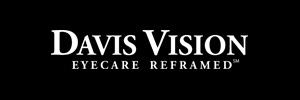Winter is when you cozy indoors and spend more time with your loved ones. Along with its chilly temperatures and shorter days, it brings along conditions that can affect your vision and eye health. A local optometrist shares how winter weather can affect your eyes.

Dry Air
It isn’t uncommon for people to experience dry eyes during winter. Your eyes could be more sensitive to light due to dry air. Eye irritation and redness can also occur due to dry and cold winter air. You can use a humidifier indoors to add moisture to the air. Using artificial tears might also help keep your eyes lubricated.
Increased Screen Time
People often spend more time indoors when it’s cold outside. You might find yourself scrolling through your phone, watching movies on your laptop or playing video games during your free time. Extended exposure to screens can heighten the risk of computer vision syndrome or digital eye strain. Its symptoms include eye fatigue, blurred vision, headaches and neck or shoulder pain. Taking frequent breaks from your digital devices and ensuring your eyeglasses are up-to-date can help you avoid this condition.
Ultraviolet Light Exposure
Even when it’s cloudy, you should wear UV-blocking sunglasses when heading outdoors. Snow and ice can create highly reflective surfaces. Prolonged exposure to ultraviolet light reflected from these surfaces can result in snow blindness or photokeratitis. Eye pain, discomfort and light sensitivity characterize this condition. Fortunately, these symptoms often only last for a couple of days. However, if you experience prolonged discomfort, it’s best to see your eye doctor.
Low Temperatures
The blood vessels in and around your eyes can constrict due to low temperatures. As a result, you might experience blurred or double vision. Your vision should return to normal when you head indoors or to a warmer location.
At Eyes on Norbeck, we’re here to provide your eyes the care they need. Don’t wait for significant vision changes to occur before getting an eye exam. Call us today at (301) 238-7199 or complete our online form to schedule an appointment. We assist patients in Potomac, MD, and nearby communities.








